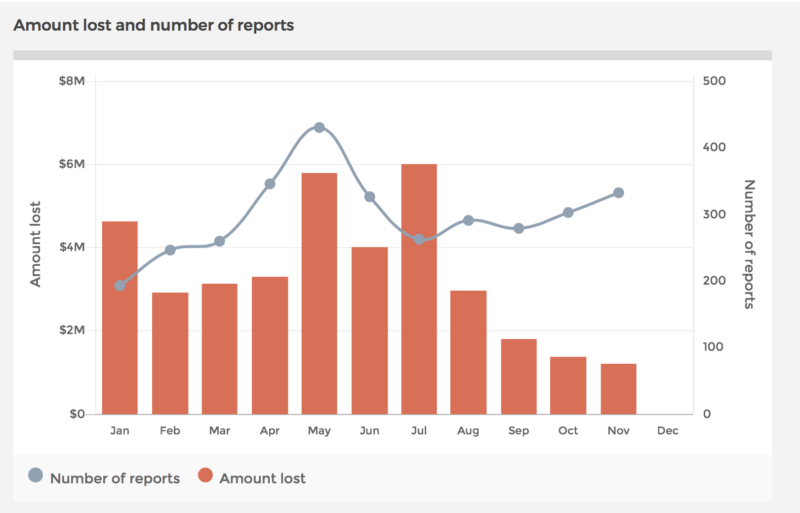Australian losses due to investment scams continue to decline in Nov 2018
Whereas the amount of losses due to investment fraud in November was lower than in October, the number of reports edged higher.

Scamwatch, the body operated by the Australian Competition and Consumer Commission (ACCC), has just published its latest data about scams with the numbers providing a somewhat positive piece of news, as the amount of losses due to investment fraud continued to decline in November.
The data show that Australians reported $1,208,468 lost as a result due to investment fraud in November 2018. This is lower than the $1,365,444 of losses reported in October. The number of reports, however, was slightly higher than in the preceding month at 332.
Since the start of 2018, Australian have informed ACCC of $37,061,469 in losses due to investment scams. The biggest amount loss was reported by those aged from 55 to 64, whereas those from 25 to 34 years of age were the most active in filing reports about investment fraud.

The large majority of investment scams are still focused on traditional investment markets like stocks, real estate or commodities. For instance, scammers cold call victims claiming to be a stock broker or investment portfolio manager and offer a ‘hot tip’ or inside information on a stock or asset that is supposedly about to go up significantly in value. They will claim what they are offering is low-risk and will provide quick and high returns.
Two other types of investments where scams are prevalent are cryptocurrency trading and binary options. Cryptocurrency trading scams have grown significantly in the past 12 months and are now the second most common type of investment scam offer pushed on victims.
According to Scamwatch, the clearest warning sign that one may be dealing with an investment scammer is how they contact their potential victim and the promises they make. Any claims like ‘risk-free investment’, ‘low risk, high return’, ‘be a millionaire in three years’, or ‘get-rich quick’ signify that one is dealing with a scammer.









